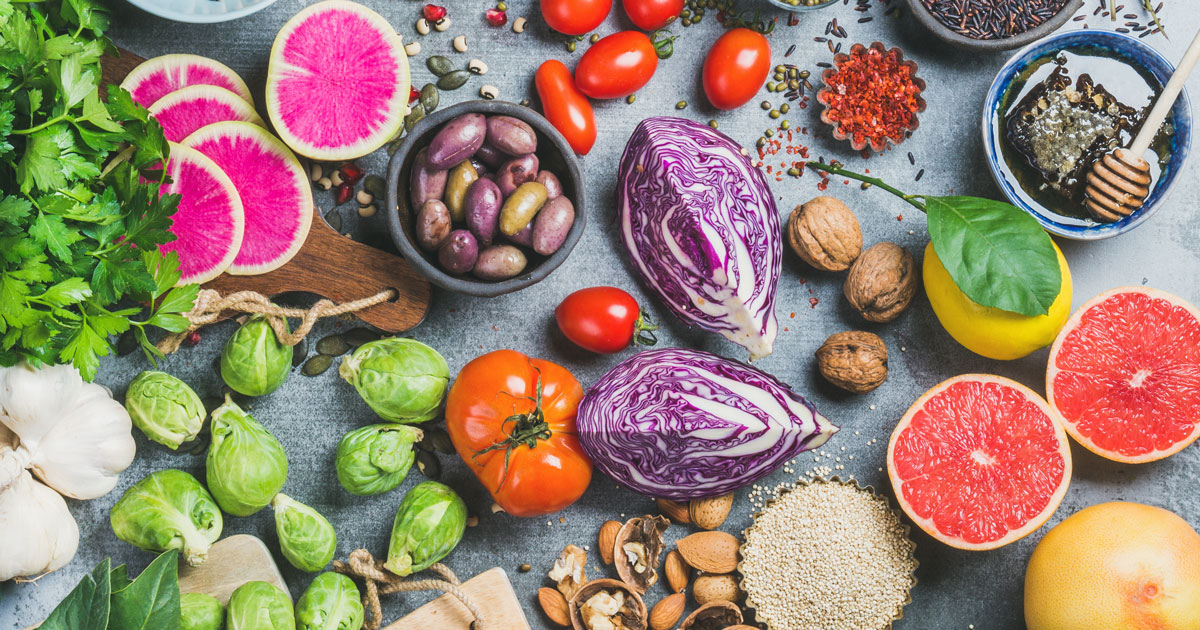Why are so many people switching off their stoves and turning to raw foods? Adherents of the raw food diet are steadily growing. Some believe that a raw food diet is the most healthful diet and the one that most closely resembles the original diet. Others believe that raw foods have curative and health-promoting properties not afforded by a diet containing cooked foods. Detractors believe this to be just another fad and some believe that it, in some ways, may be unhealthful. What should you do?
Raw Claims
Raw food diets are nothing new. Sylvester Graham (of Graham Cracker fame) promoted raw food diets in the early 19th century. He condemned cooking and claimed that illness could be prevented by eating only raw foods. Those who eat a raw food diet claim that it gives them more energy, enhances mental acuity, and purifies the body of toxins. These are subjective claims not verified by research.
Another major claim made for raw food diets is that they contain live enzymes that assist with the task of digestion. Proponents of the raw food diet argue that heating food above 118 degrees F. destroys the enzymes in food, and hence destroying the vitality of food and lessening its nutritional value. In reality, enzymes are inactivated by the very acidic environment of the stomach so that the enzymes in raw food never really make it past the stomach under normal circumstances.
Deficiencies May Occur
Cooking or baking legumes, grains, potatoes, and other starchy foods is important for improved digestibility, since raw protein and starch are often difficult to digest. Consuming only raw foods then, would greatly limit the variety of one’s diet and certain food groups would be under-represented in the diet. Such a diet can cause a number of deficiencies in vital vitamins and minerals.
Even though some nutrients may be altered by heat, cooking and baking, when properly undertaken, cause minimal losses of most vitamins and minerals. Major losses in vitamins and minerals occur when grains are refined commercially and vegetables are boiled in a large volume of water which is then discarded.
Protection Enhanced
There are actually some advantages to using cooked foods. Cooking unleashes 2- to 3-fold more of the lycopene and other carotenoids (the pigments in red, yellow-orange, and green vegetables) for the body to absorb.1 These carotenoids protect against heart disease and cancer. In addition, the oligosaccharides in legumes which cause the flatulence problem are partially removed with usual cooking procedures.
Baking bread with yeast activates the enzyme phytase which breaks down phytic acid. This process greatly increases the absorption of the essential minerals zinc and calcium. The availability of these minerals from uncooked grains is low.
Zap the Bugs
A number of major food poisonings have resulted from eating raw or improperly cooked foods contaminated with Salmonella and E. coli 07:H157. Cooking destroys these dangerous organisms.
While eating raw fruit and vegetables is a healthful plan, eating raw foods exclusively may not be the best.
Editor’s Note: Raw garlic, cabbage, and broccoli have more anti-cancer properties than in their cooked state. Cruciferous vegetables have anti-inflammatory and cancer-fighting phytochemicals. They stimulate liver detoxification of carcinogens. However, individuals who have thyroid conditions should not eat raw cruciferous vegetables because of their goitrogenic compounds. These compounds can interfere with thyroid hormones by reducing the iodine uptake. Iodine is essential for thyroid hormones. Cooking deactivates most goitrogens. Steaming is the best way.
This article was written by nutritionist Winston Craig, PhD and originally was published in The Journal of Health and Healing.
- Palermo M. The effect of cooking on the phytochemical content of vegetables. J Sci Food Agric.2014 Apr;94(6):1057-70. [↩]

